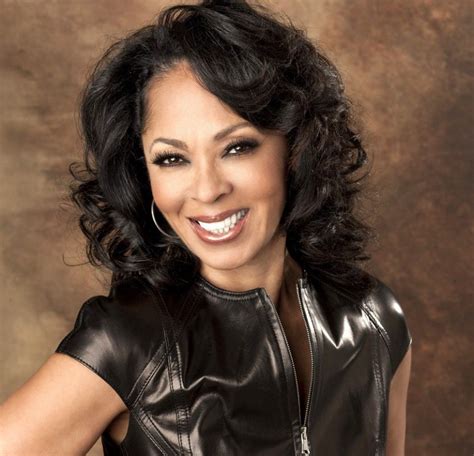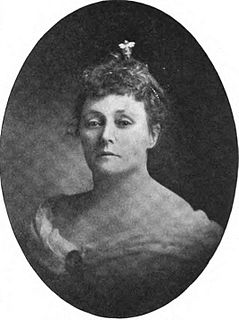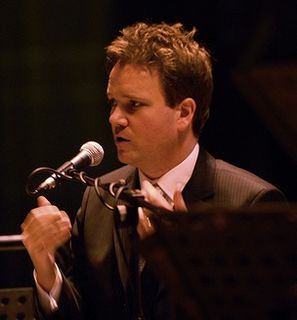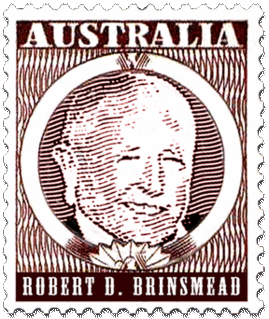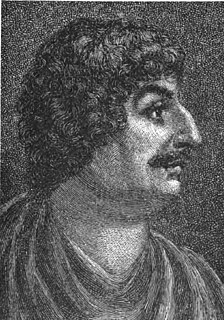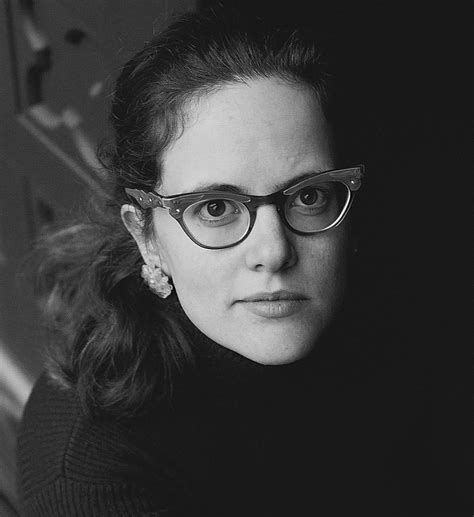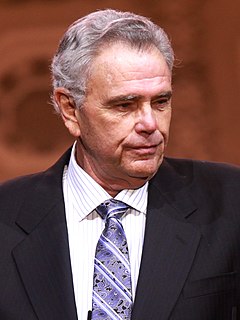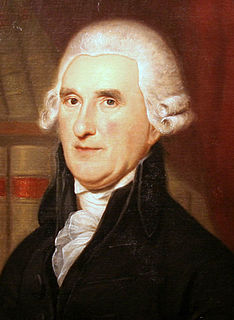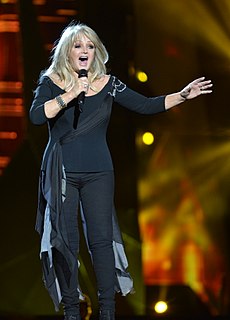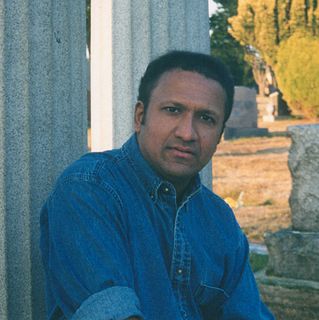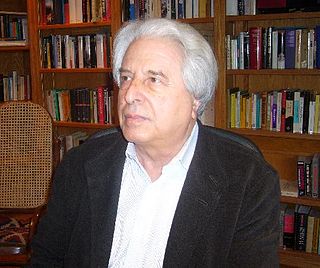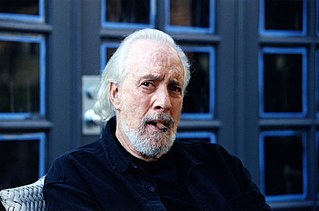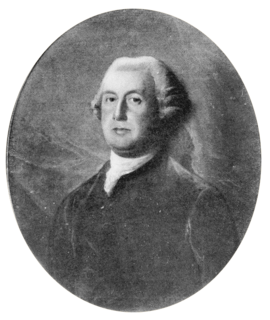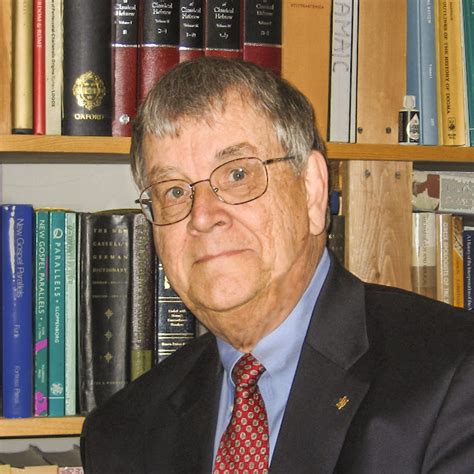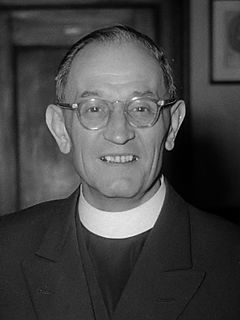Top 453 Protestant Reformation Quotes & Sayings - Page 7
Explore popular Protestant Reformation quotes.
Last updated on November 15, 2024.
But the United States is neither a Christian nation nor the exclusive home of any particular religious group. Non-Christians are not guests. We are as much hosts as any Mayflower-descendant Protestant. It is our home as well as theirs. And in a home with so many owners, there can be no official sectarian prayer. That is what the First Amendment is all about, and the first act by the new administration was in defiance of our Constitution.
The idea that the universe itself is physically structured around hierarchy was sort of an integration of earlier science and theology that was made by people like Thomas Aquinas, that was assumed doctrinally in that tradition. The Reformation rejected that model of reality and created a highly individualistic metaphysics in the sense that it located everything normative that can be said about reality in human perception, there being, of course, no other avenue of knowing. There is Scripture, there is conscience, there is perception itself.
The words and lives of Christian men must be in continual process of reformation by the written Word of their God. This means that ecclesiastical traditions and private theological speculations may never be identified with the word which God speaks, but are to be classed among the words of men which the Word of God must reform.
What is wrong with looking muscular? Muscles are beautiful. Strength is beautiful. Muscle tissue is beautiful. It is metabolically, medically, and philosophically beautiful. Muscles retreat when they're not used, but they will always come back if you give them good reason. No matter how old you get, your muscles never lose hope. Few cells of the body are as capable as muscle cells are of change and reformation, of achievement and transcendence.
Most of my library consists of books on the Catholic faith: conversion stories, books on saints and Early Church Fathers, Apparitions of Mary, prayer books, Scriptural resource books on Apologetics, Typology, concordances, bible dictionaries, bible encyclopedias and at least 40 bibles - both Catholic and Protestant editions in several different translations.
Manly natural religion - it is not joining the Church; it is not to believe in a creed, Hebrew, Protestant, Catholic, Trinitarian, Unitarian, Nothingarian. It is not to keep Sunday idle; to attend meetings; to be wet with water; to read the Bible; to offer prayers in words; to take bread and wine in the meeting house; love a scape-goat Jesus, or any other theological clap-trap.
Neither revolution nor reformation can ultimately change a society, rather you must tell a new powerful tale, one so persuasive that it sweeps away the old myths and becomes the preferred story, one so inclusive that it gathers all the bits of our past and our present into a coherent whole, one that even shines some light into the future so that we can take the next step… If you want to change a society, then you have to tell an alternative story.
Ours was a very progressive Protestant family, but my parents were God-loving rather than God-fearing. We went to church, and I still go with my mum and dad when I return home - it's a family thing. I played flute in my dad's marching band, but I had an integrated upbringing. We had a lot of Catholic friends.
The form of religion was always a trivial matter to me. ... The pageantry of the Roman Church that first mothered and nurtured me touches me to this day. I love the Protestant prayers of the English Church. And I love the stern and knotty argument, the sermon with heads and sequences, of the New England Congregationalist. For this catholicity Catholics have upbraided me, churchmen rebuked me, and dissenters denied that I had any religion at all.
...There are issues worth advancing in images worth admiring; and the truth is never "plain," nor appearances ever "sincere." To try to make them so is to neutralize the primary, gorgeous eccentricity of imagery in Western culture since the Reformation: the fact that it cannot be trusted, that imagery is always presumed to be proposing something contestable and controversial. This is the sheer, ebullient, slithering, dangerous fun of it. No image is presumed inviolable in our dance hall of visual politics, and all images are potentially powerful.
I knelt and prayed, and the strongest truth came over me. Didn't matter if God in his heaven was a Catholic or a Protestant God, or the God of the Hindus. What mattered was something deeper and older and more powerful than any such image - it was a concept of goodness based upon the affirmation of life, the turning away from destruction, from the perverse, from man using and abusing man. It was the affirmation of the human and the natural.
For the believer in divine creation, the open question of the Mystery of Being is like an open wound. It stings and gapes, and the believer cannot rest till it be healed up, closed up, smeared with the soothing balm of an answer, even if his doctrine be a sophisticated one like Aquinas's or that of the latest Liberal Protestant theologian.
The society of Christendom and especially of Western Christendom up to the explosion, which we call the Reformation, had been a society of owners: a Proprietarial Society. It was one in which there remained strong bonds between one class and another, and in which there was a hierarchy of superior and inferior, but not, in the main, a distinction between a restricted body of possessors and a main body of destitute at the mercy of the possessors, such as our society has become.
My background is Protestant so I benefited from the great Bible teaching that was provided there... I did love the more culturally classical things, like Irish music, which I think is some of the most congregational-style music when you think of... 'St. Patrick's Breastplate' (and) 'Danny Boy.' These are traditional Irish melodies. I think being brought up there (Ireland) gave me a sense of melody that is very attuned to congregational singing.
problematic within post-Reformation dogmatics. Is faith something I `do' to earn God's favour, and, if not, what role does it play? Once we release Paul's justification-language from the burden of having to describe `how someone becomes a Christian', however, this is simply no longer a problem. There is no danger of imagining that Christian faith is after all a surrogate `work', let alone a substitute form of moral righteousness. Faith is the badge of covenant membership, not something someone `performs' as a kind of initiation test.
For William Cecil and others in Elizabeth's Council, whose sense of Catholic conspiracy and threat governed their political thinking, England's security lay in the creation of a united and Protestant British Isles, which could stand alone, ready to resist invaders. Divine providence had set the islands apart from the rest of the world by encircling seas, 'a little world by itself'.
If we move in the direction of biblial absolutism how can we escape turning the New Testament into a Christian Torah and the gospel into a new law? Once we do that, religious fascism with all its sectarian ugliness cannot be far away. Far better a mistaken Christian (a heretic) who has somehow caught the Spirit of Christ, than an orthodox Protestant who thinks that the Spirit is mediated to him through the letter of correct theology.
I do a certain amount of work in religious communities on these issues. It's not the central focus of my work but it is certainly an area where I have worked a lot. It has gotten much better over the years, especially over the last couple years. There wasn't a religious environmental movement 15 years ago, but there is now - in the Catholic community, the Jewish community, the mainline Protestant community, and in the Evangelical community.
When we decided to marry, we had two ceremonies - one was more bureaucratic for the sake of the Swiss authorities,then a church service in Florence, and I wrote the music for the church service. The challenge in that was that Iman's [Abdulmajid] family are Muslim and mine are Protestant. I had to be careful about the prayers that we chose and the music I wrote because I didn't want to offend either side.
Scholars have endlessly written about antebellum Protestant thinking about slavery. Now, finally, Friends of the Unrighteous Mammon turns a spotlight on a new, crucial question: how did antebellum Protestants parse capitalism? For anyone who seeks to understand the political economy of the antebellum era-or, indeed, the complex entanglement of Christianity and capitalism today-this book is critical. I, for one, am very grateful to Stewart Davenport for having written it.
To subvert the tyranny of our execrable government, to break the connection with England, the never-failing source of all our political evils and to assert the independence of my country- these were my objectives. To unite the whole people of Ireland, to abolish the memory of all past dissensions, and to substitute the common name of Irishman in place of the denominations of Protestant, Catholic and Dissenter - these were my means.
I learned really early on that I had to treat it as if it were a real job. This might be my middle class background - the Irish work ethic, which isn't quite the same as the Protestant work ethic - but still, it's, 'Get a job and show up every day. Be there. And don't complain. Who do you think you are: you're nobody special; go to work.'
I believe in the importance of unity among those who know Christ, who profess to be "Christians." . . . I believe there is an important spiritual awakening beginning in the hearts of those truly committed to Christ in the Protestant and Catholic communities. Is it possible that Pope Francis may prove to be an answer not only to the prayers of Catholics, but also those known as Protestants?
And while Protestant reformers broke with Rome on a variety of counts, their treatment of their fellow human beings was no less disgraceful. Public executions were more popular than ever: heretics were still reduced to ash, scholars were tortured and killed for impertinent displays of reason, and fornicators were murdered without a qualm.
The myth of the dead Indian goes back to the Protestant settlement of the U.S. The Pilgrims wanted to start a new life in America. They wanted to believe that in some sense they had come to a new Eden and that they could leave history behind in Europe. So they convinced themselves that this land had no history, that this was "virgin" land. This made the Indians' presence inconvenient.
The true liberty of the press is amply secured by permitting every man to publish his opinion; but it is due to the peace and dignity of society, to inquire into the motives of such publications, and to distinguish between those which are meant for use and reformation, and with an eye solely to the public good, and those which are intended merely to delude and defame. To the latter description, it is impossible that any good government should afford protection and impunity.
Protestant parents still keep a Bible handy in the house, so that the children can study it, and one of the first things the little boys and girls learn is to be righteous and holy and not piss against the wall. They study those passages more than they study any others, except those which incite to masturbation. Those they hunt out and study in private.
What is needed is a move beyond tradition, nothing less than a reform movement to bring the core concepts of Islam into the modern age, a Muslim Reformation to combat not only the jihadist ideologues but also the dusty, stifling seminaries of the traditionalists, throwing open the windows to let in much-needed fresh air.... It is high time, for starters, that Muslims were able to study the revelation of their religion as an event inside history, not supernaturally above it.... Broad-mindedness is related to tolerance; open-mindedness is the sibling of peace.
Like the graduates of some notorious boot camp, my brothers and sisters and I look back with a sort of perverse glee at the rigors of our Catholicism. My oldest sister, Mary, was so convinced of the church's omnipotence that when she walked into a Protestant church with some high-school friends, she was sure its walls would crash down on her head.
We were brought up Protestant, and I went to church three times a day on a Sunday. My parents weren't Bible-bashers, but we all have a strong belief in God and a strong faith. We had a huge garden; our house was a bit like a scene from 'The Good Life.' I think Mam and Dad had it really hard, bringing up a big family on very little.
Measure her rights and duties by the unerring standard of moral being… and then the truth will be self-evident, that whatever it is morally right for a man to do, it is morally right for a woman to do. I recognize no rights but human rights – I know nothing of men’s rights and women’s rights; for in Christ Jesus, there is neither male nor female. It is my solemn conviction, that, until this principle of equality is recognised and embodied in practice, the Church can do nothing effectual for the permanent reformation of the world.
Like most places, America has always had potent strains of anti-Semitism - crude and polished, K.K.K. and country club. But unlike many places, we have always had important strains of philo-Semitism as well; there is a long American tradition, with both Protestant and Enlightenment roots, of really liking Judaism and the Jews.
In the ranks of the movement [National Socialist movement], the most devout Protestant could sit beside the most devout Catholic, without coming into the slightest conflict with his religious convictions. The mighty common struggle which both carried on against the destroyer of Aryan humanity had, on the contrary, taught them mutually to respect and esteem one another.
The decline of witch-belief was . . . entirely the product of religious skepticism. . . . The Catholic Church did not reform itself on this matter; it was forced by outside pressure to reform. To be sure, the Protestant churches were no better in this regard; it is simply that they had less time - only two or three centuries - to engage in the torching of witches. After all, John Wesley, the founder of Methodism, stated quite correctly that disbelief in witches meant a disbelief in the Bible.
This is the great new problem of mankind. We have inherited a large house, a great ‘world house’ in which we have to live together– black and white, Easterner and Westerner, Gentile and Jew, Catholic and Protestant, Muslim and Hindu– a family unduly separated in ideas, culture and interest, who, because we can never again live apart, must learn somehow to live with each other in peace.
In Joel's view, that reformation begins with people going o the trouble and expense of buying directly from farmers they know - "relationship marketing," as he calls it. He believes the only meaningful guarantee of integrity is when buyers and sellers can look one another in the eye, something few of us ever take the trouble to do. "Don't you find it odd that people will put more work into choosing their mechanic or house contractor than they will into choosing the person who grows their food?"
Most mainline Protestant churches are, to one degree or another, post-Christian. If they no longer seem disposed to converting the unbelieving to Christ, they can at least convert them to the boggiest of soft-left clichés, on the grounds that if Jesus were alive today he’d most likely be a gay Anglican bishop in a committed relationship driving around in an environmentally friendly car with an “Arms are for Hugging” sticker on the way to an interfaith dialogue with a Wiccan and a couple of Wahhabi imams.
Theres another reason for working inside the system. Dostoevsky said that taking a new step is what people fear most. Any revolutionary change must be preceded by a passive, affirmative, non-challenging attitude toward change among the mass of our people. They must feel so frustrated, so defeated, so lost, so futureless in the prevailing system that they are willing to let go of the past and change the future. This acceptance is the reformation essential to any revolution.
Susannah Heschel's The Aryan Jesus is a brilliant and erudite investigation of the convergence between major trends in German Protestantism and Nazi racial anti-Semitism. By concentrating on the history of the Institute for the Study and Eradication of Jewish Influence on German Religious Life, Heschel describes in forceful detail the Nazification of all aspects of Protestant theology, including the Aryanization of Jesus himself. This is a highly original and important contribution to our understanding of the Third Reich.
Black pride. Gay pride. White, Anglo-Saxon Protestant pride. All of these things, you know, they're polarized, aren't they? The red and blue states. Christians, that's the most insidious aspect of it, giving into this great Christian image of America. That's the most frightening thing of all. Whereas in the past they're trying to find things that unite us, to minimize the differences. Whereas today there's this belief in empowerment and entitlement by maximizing differences. I'm not so sure that that's healthy.
Delphine Seyrig is a very proper woman, from high society. She's from the Ferdinand de Saussure family, the structuralist. Old money. Swiss. Protestant. They were that type of well-educated people who could recognize a good artist before others, and she was like that. Even if it was against something inside her. Tell me one actress in 1972 in France, except Delphine, at her level, who would love Hôtel Monterey. No one.
The failure of the Reformation to capture France had left for Frenchmen no half-way house between infallibility and infidelity; and while the intellect of Germany and England moved leisurely in the lines of religious evolution, the mind of France leaped from the hot faith which had massacred the Huguenots to the cold hostility with which La Mettrie, Helvetius, Holbach, and Diderot turned upon the religion of the fathers.
The New Apostolic Reformation is an extraordinary work of the Holy Spirit that is changing the shape of Christianity globally. It is truly a new day! The Church is changing. New names! New methods! New worship expressions! The Lord is establishing the foundations of the Church for the new millennium. This foundation is built upon apostles and prophets. Apostles execute and establish God's plan on the earth.
I was a young woman who had grown up in the mountains of Montana as a Protestant Methodist in a pretty good social gospel tradition. I became fascinated with the religious lives of others who seemed also to be very religious, yet in ways that were quite different from my own. That fascination led to relationships, in India and elsewhere, with families of Hindus, of Muslims, of Sikhs, and a lot of study.
For although this was a very heroic war, with a parade of every sort of high moral principle, and with the most sonorous language employed upon both sides, it somehow failed to bring about either the reformation or the ruin of humankind: and after the conclusion of the murdering and general breakage, the world went on pretty much as it has done after all other wars, with a vague notion that a deal of time and effort had been unprofitably invested, and a conviction that it would be inglorious to say so.
If you were a successful upper-middle-class Negro girl in the 1950s and '60s, you were, in practice and imagination, a white Protestant upper middle-class girl. Young, good-looking white women were the most desirable creatures in the world. It was hard not to want to imitate them; it was highly toxic, too, as we would learn.
The Pope going to Jerusalem, the Pope recognising the State of Islam, the Pope going to the wall organising a concert for the Holocaust in the Vatican, going to the synagogue in Vatican, and that happens in Protestant service as well. That doesn't mean that anti-Semitism disappear, but it is on certain level that Jews all the time, or with Christians, Catholics, Protestants, Jews, meeting all the time, studying together, signing petitions for all kinds of causes.
That the zeal for God's honor is also a dangerous passion, that the Christian must bring with him the courage to swim against the tide instead of with it... accept a good deal of loneliness, will perhaps be nowhere so clear and palpable as in the church, where he would so much like things to be different. Yet he cannot and he will not refuse to take this risk and pay this price... he belongs where the reformation of the church is underway or will again be underway.
After a few days in hospital, I was thinking, Oh, gee - I raised in a church, Protestant upbringing which I'd rejected as an adult - I'm lying in bed thinking, Hmmm, maybe I ought to pray. They always say there are no atheists in a foxhole... and I thought, Here I am in a pretty good-sized foxhole... and I thought Naahhh. I wouldn't respect any God who would listen to me after I'd rejected him so vociferously.
A Tory..., since the revolution, may be defined in a few words, to be a lover of monarchy, though without abandoning liberty; anda partizan of the family of Stuart. As a Whig may be defined to be a lover of liberty though without renouncing monarchy; and a friend to the settlement in the protestant line.
The people of North America, at this time, expect a revisal and reformation of the American Governments, and are better disposed to submit to it than ever they were, or perhaps ever will be again.97. This is therefore the proper and critical time to reform the American governments upon a general, constitutional, firm, and durable plan; and if it is not done now, it will probably every day grow more difficult, till at last it becomes impracticable.
The First Amendment of the US Constitution ... is an eloquent repudiation of the First Commandment's prohibition of religious freedom. It is also a repudiation of the Third Commandment's prohibition of freedom of speech. The Thirteenth Amendment repudiates the institution of slavery which is so cozily assumed by the Fourth and Tenth Protestant Commandments.
I protect my right to be a Catholic by preserving your right to believe as a Jew, a Protestant, or non-believer, or as anything else you choose. We know that the price of seeking to force our beliefs on others is that they might some day force theirs on us. This freedom is the fundamental strength of our unique experiment in government. In the complex interplay of forces and considerations that go into the making of our laws and policies, its preservation must be a pervasive and dominant concern.
Combativeness was, I suppose, the dominant trait in my grandmother's nature. An aggressive churchgoer, she was quite without Christian feeling; the mercy of the Lord Jesus had never entered her heart. Her piety was an act of war against Protestant ascendancy. ...The teachings of the Church did not interest her, except as they were a rebuke to others.
And then the work bears a strong sense of leave-taking for me personally. It ends the work I began in the 1960s (paintings from black-and-white photographs), with a compressed summation that precludes any possible continuation. And so it is a leave-taking from thoughts and feelings of my own on a very basic level. Not that this is a deliberate act, of course; it is a quasi-automatic sequence of disintegration and reformation which I can perceive, as always, only in retrospect.
I believe in an America that is officially neither Catholic, Protestant nor Jewish; where no public official either requests or accepts instructions on public policy from the Pope, the National Council of Churches or any other ecclesiastical source; where no religious body seeks to impose its will directly or indirectly upon the general populace or the public acts of its officials; and where religious liberty is so indivisible that an act against one church is treated as an act against all.
We must think of human progress, not as of something going on in the race in general, but as something going on in a small minority, perpetually beleaguered in a few walled towns. Now and then the horde of barbarians outside breaks through, and we have an armed effort to halt the process. That is, we have a Reformation, a French Revolution, a war for democracy, a Great Awakening. The minority is decimated and driven to cover. But a few survive- and a few are enough to carry on.
When Hitler came for the Jews... I was not a Jew, therefore, I was not concerned. And when Hitler attacked the Catholics, I was not a Catholic, and therefore, I was not concerned. And when Hitler attacked the unions and the industrialists, I was not a member of the unions and I was not concerned. Then, Hitler attacked me and the Protestant church - and there was nobody left to be concerned.




